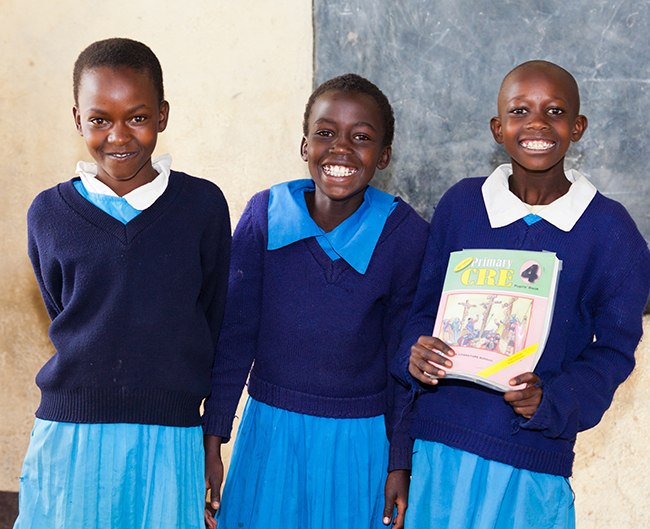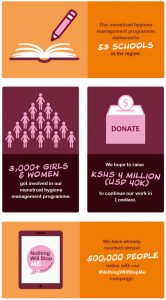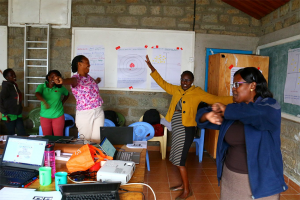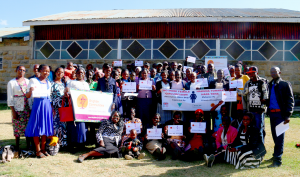Every year we like to remind our readers and supporters about the UN International Day of the Girl on 11 October – in fact we’ve been doing so since this initiative began in 2012.
Girls and their rights are a strong focus of our work and we wholeheartedly agree that, as the UN site says: “Adolescent girls have the right to a safe, educated, and healthy life, not only during these critical formative years, but also as they mature into women.”
The big issues matter, of course – like violence, child marriage, unwanted pregnancy and female circumcision. Through our Alternative Rites of Passage programme we play our own modest part in promoting education about, and alternatives to, female circumcision. We are also involved in efforts to educate communities about sexual and reproductive health.
But less obvious issues also make a difference. The one we often highlight, through our Girls for Girls programme, is provision of sanitary products for school-going adolescent girls. It’s a relatively simple and inexpensive concept. The effect, however, is amazing: no reasonable sanitary care can mean no schooling for a week every month. With sanitary care, missing education during periods is no longer a concern for adolescent girls.
Things are improving. Across the world, in 2015, girls in the first decade of life were more likely to enrol in primary school and receive key vaccinations, and less likely to suffer from health and nutrition problems than were previous generations. Nevertheless, lack of educational opportunities, pressure to marry far too young, violence, and inability to take part in civil society in numerous ways are still holding back far too many women.





